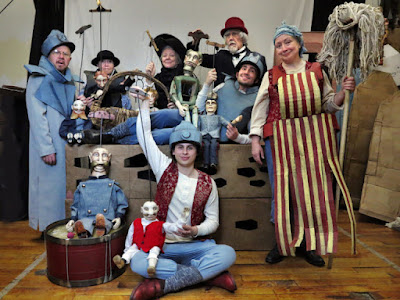It was a little over 100 years ago that the Czech writer Jaroslav Hašek died, leaving his satirical novel The Good Soldier Švejk unfinished, and providing theatre artists with the raw material for some of the most influential stage adaptations of the 20th century.
Director Erwin Piscator famously brought the novel to the stage as a piece of epic theatre in the 1920s, collaborating on the script with Max Brod, Hans Reimann, Erwin Piscator, Felix Gasbarra, and Bertolt Brecht. Švejk later became the inspiration for the 1936 musical Johnny Johnson by Kurt Weill and Paul Green.
The story follows Josef Švejk, a muddle-headed man who volunteers to fight for the Austro-Hungarian Empire after the breakout of the First World War. Authorities aren't sure if he belongs in the army or a mental institution. Eventually, however, he is shipped off to the front, but after he misses his train, he decides to walk there... only in the wrong direction.
Last night, I saw a puppet adaptation of the novel performed by the Czechoslovak-American Marionette Theatre. In this adaptation by Vít Horejš, different performers take on the role of Švejk in turn, as the Švejk puppet is passed from one person to another. While this might keep audience members from identifying with the protagonist, it also prevents them from getting bored with any one actor, as Švejk's voice changes periodically throughout the performance.
If you want to see the production, it's running until February 18th at Theater for the New City.
